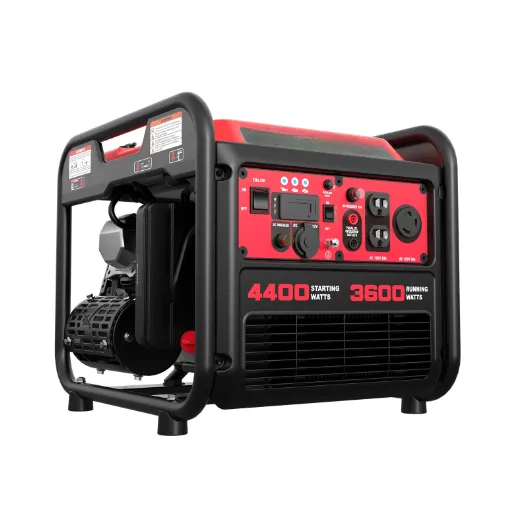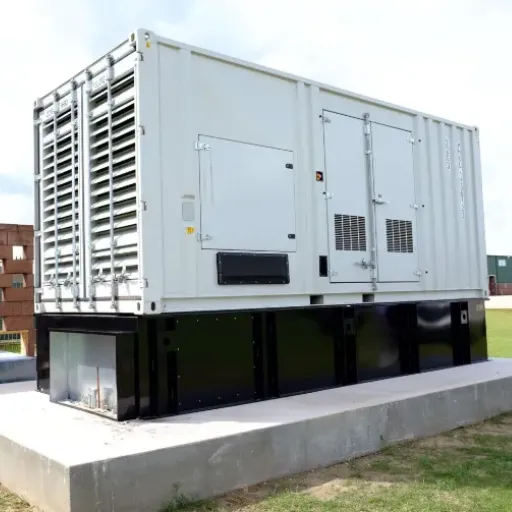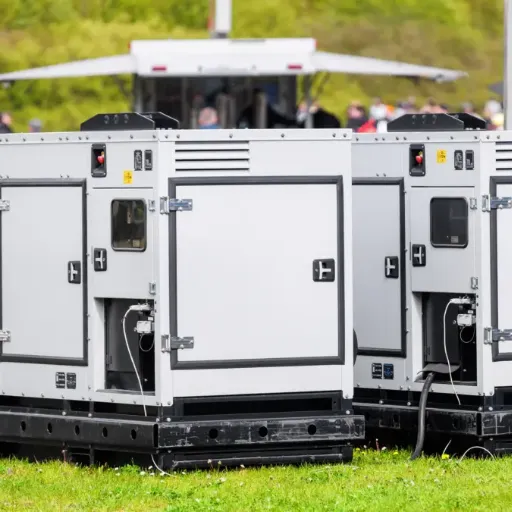A person needs to understand the pricing and the variables that contribute to the total cost of a portable generator, as this will inform the final purchase plan. You may need to have an electricity connection in place when there is a disconnection. This might be because you are going on a camping trip, or you need an electricity source to carry with you in case the regular power source fails. In fact, the cost of a small generator can be low, medium, or high, depending on the presence of specific components, its size, quality, popularity, and many other factors. This post will provide information on the average cost of a portable generator, as well as the expenses typically associated with it, and help you choose the ideal one for your situation. By then, you would know exactly what you should anticipate in terms of what those prices may entail and therefore be in a position to make a compelling business decision about cost-effective equipment.
Factors Influencing Portable Generator Cost
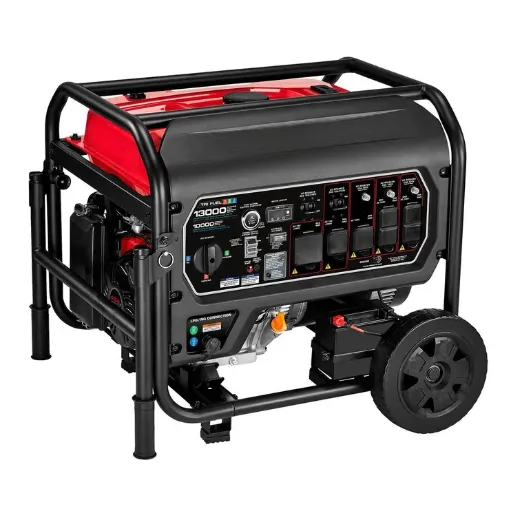
Power Output
How much power capabilities does the generator have is a question that greatly determines the cost that an individual will incur in obtaining one. If, for example, you require a generator that will power other gadgets or instruments, then ensure you prepare yourself to choose one that can sustain the various activities.
Fuel Type
The fuel type, which includes gasoline, propane, or dual-fuel, will partly affect the cost of the generator as well as its operating expenses. Generally, dual-fuel models are more expensive initially; however, they offer greater operational flexibility.
Features
The various options available in a generator may be expensive; for instance, models with electric start, inverter technology for noise reduction, and extra protective features, such as carbon-monoxide-silenced alarms.
Brand and Build Quality
People are charged higher prices for top-tier products from recognized companies that have a history of producing high-quality products for a long time. Purchasing these products will result in significantly lower maintenance expenses, or rather, damage replacements.
Portability and Size
Medium- and small-sized generators are usually cheaper but may not be capable of running larger applications, whereas large-sized generators with wheels or carrying handles for improved transportation may come at an increased cost.
Power Output and Wattage Considerations
It is prudent to consider the power output and wattage needed when deciding to buy a generator, as one may purchase a machine that does not fit their budget. Generators come in various wattage powers and performance, and are mostly rated in watts. For a small portion of the population, particularly for small needs such as powering a few small gadgets like small TVs and lights in case of a blackout, a generator with a maximum wattage of 3,000 watts should be sufficient. On the contrary, for heavy-duty applications, such as a substantial number of HVAC systems and several large devices to be supplied, a generator rated 7,500 kilowatts of power or more must be used.
When determining what is needed, I strongly recommend checking the initial (surge) wattage and the regular (running) wattage of the equipment you want to run. Refrigerators, air conditioners, and other large electronic devices, for instance, come with high surge wattage even when the latter can be a fraction of the former. This balance is necessary for the generator to apportion the exact quantity of power required to supply the load, thereby preserving the generator’s performance. Furthermore, obtaining a model that can be set to provide a higher or lower wattage output, or one with automatic watt adjustment features, can better accommodate the varying and changing wattage power demand.
Brand Reputation and Reliability
When deciding on a generator, questions regarding brand approval and trust should be given priority due to concerns about substandard products and low output. Particularly reputable brands have a history of producing working and functional products, generating comfortable and confident sales to the extent that their products also come with a warranty and effective customer support at every turn. For example, companies with positive customer feedback, along with high average ratings, typically demonstrate good quality at the time of delivery and offer reliable maintenance services. It is also advisable to delve deeper into information about the equipment, such as the presence of spare accessories and components, the availability of maintenance services, and the lifespan of the generators offered by different manufacturers, as these details are equally crucial in product line selection. These are all contributing factors that may provide assurance that the purchase is protected by a legitimate and respected company.
Fuel Type: Gasoline vs. Dual Fuel Options
| Key Point | Gasoline Generators | Dual Fuel Generators |
|---|---|---|
| Fuel Source | Uses only gasoline | Can use gasoline or propane |
| Fuel Availability | Readily available at most stations | Flexible depending on fuel type |
| Cost | Gasoline is often pricier | Propane is cheaper but needs a tank |
| Storage Requirements | Gasoline has a shorter shelf life | Propane stores longer with no spoilage |
| Efficiency | Slightly more efficient per gallon | May sacrifice some efficiency |
| Environmental Impact | Higher emissions | Cleaner-burning with propane option |
| Engine Maintenance | May deposit more carbon residue | Propane burns cleaner, with less residue |
| Power Output | Consistent power output | Comparable; propane slightly lower |
| Operating Flexibility | Limited to gasoline availability | Offers adaptability in fuel choice |
| Suitability in Emergencies | Relies on gasoline being stocked | More versatile in fuel sources |
Types of Portable Generators
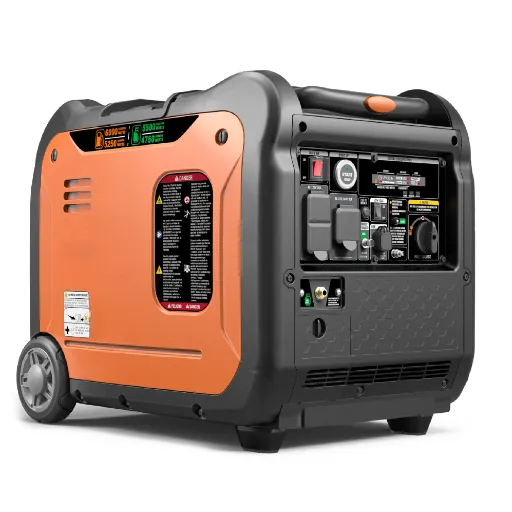
Conventional Portable Generators
These are perhaps the most common type, driven by a gas or a diesel fuel engine. The engines ensure an even flow of electrical current, making them ideal for powering backup light instruments and devices during a power failure. However, they usually tend to be very loud and are generally not the most environmentally friendly of these devices, as they tend to pollute a lot more.
Inverter Generators
Unlike the conventional noise-emitting and air-contaminating generators, inverter generators have a reputation for quiet operation and effective fuel combustion. These types of new-age camp generators provide clean and steady power, ensuring the security of delicate gadgets such as laptops and modern-day smartphones.
Dual-Fuel Generators
These all-around generators can use either a straight gasoline or a gas tank with propane, providing ample fuel options. This is more so because, in emergencies, one kind of fuel, which is either free or in short supply, cannot be found at the instance of need.
Solar-Powered Generators
Indexless, noiseless, solar-powered generators work on batteries, which are charged by sunlight through sun-absorbing surfaces. This usually implies that these can be used for new, small, and lightweight works, but cannot be used for more demanding tasks or for extended periods.
Portable Generators: Overview and Features
Portable generators, also known as gensets, are designed to be lightweight and capable of providing temporary power for various purposes. They come in handy in scenarios where power is unavailable, such as during repairs, on the road at a construction site, at picnics, music festivals, and even during sporting activities. Any of these power sources is subject to oil shortages and may not deliver when needed, resulting in more losses. Currently, manufacturers of portable generators have introduced new models featuring advanced features, including easy-to-operate dashboards, powerful motors, and safety features that prevent motor damage when the load is too heavy and there is no more oil remaining, resulting in automatic shut-downs. These features have greatly reduced the output of the fuel tanks due to inverter technology and have moved the industry to even higher digital heights. Besides the merits of quieter operational levels, they have also increased the self-serviceability, thus cutting the chances of poor service delivery. From as low as 1,000 watts to as high as 10,000 watts, up to storage, it is impossible to disregard the user and the importance of the machine in helping to resolve the inability to do things correctly.
Inverter Generators: Benefits and Applications
Inverter generators offer a fresh blend of power provision for individuals needing capable, portable, efficient energy that comes with safety precautions and even a warranty. This notwithstanding, the first thing that distinguishes the inverter from the traditional type is that its output is of higher quality, more stable, and cleaner, making it possible to use laptops, mobile phones, as well as sensitive gadgets such as medical equipment. One of their most significant advantages is the low cost of operation. Effort increases during a load increase, saving fuel and reducing the release of contaminated air. Other than that, the capacity of these generators is mentioned as another positive point, as they are easy to carry around when traveling out of town, for example, while camping or at sea.
Inverter generators are versatile devices; they can be applied to many situations. In domestic applications, they are excellent for backup power, providing power during blackouts to keep essentials such as refrigerators, lights, and communication tools running. Being quiet, a majority of people prefer inverter generators when they go for outdoor activities like camping, where generators are used to power caravans as well as power tools, etc. Lastly, these types of generators are commonly used in working environments, especially where power must be pure and continuous without noise, such as construction work or events that require audio equipment. In terms of technology accompanied by convenience, these generators are also the most popular and effective solutions available today for various power requirements.
Home Backup Generators: Ensuring Power During Outages
Home backup generators are essential for providing households with a reliable source of electricity, even in the event of grid failure. Especially when it comes to confidence in services, well-being, or functionality, even while staying at home, ensuring that comfort is achieved is crucial. There are standby generators designed to activate upon failure of the main electricity supply and power specific equipment, such as refrigerators, air conditioners, heaters, and other essential facilities. The current generator systems also tend to come with silencers and technologically advanced systems, which often possess smart attributes, and have the option of using gases such as propane and methane, typically through gas generator systems. Some reports have been issued stating that interruptions in electric power supply are expected to occur more frequently due to catastrophes and the need for grid replacement over time. Additionally, considering that these generators are not standard but available, they can respond to emergencies based on their size and usage – smaller ones can be used for temporary, short-term problems, and larger ones are available for longer-term outages.
Additional Features Impacting Cost
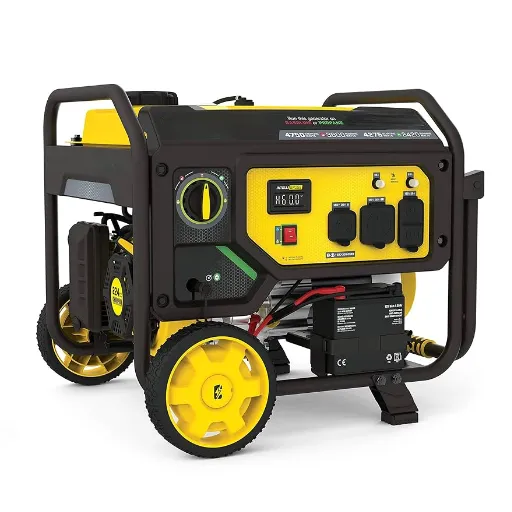
When assessing the cost of a standby generator, numerous ancillary functionalities may contribute significantly to the price:
- Automatic Transfer Switch (ATS): This feature of the generator enables it to start automatically in the event of power loss, providing power immediately without interruption. Generators with ATS usually cost a bit more, but they are also more convenient and safe.
- Noise Reduction Technology: It is known that generators with sound suppression technologies are relatively expensive to purchase; however, they are quite helpful in domestic installations where noise is a concern.
- Fuel Efficiency: This may result in higher costs due to models designed for optimal fuel use, but over time, it helps decrease the amount spent on fuel hedilation after extensive use.
- Weatherproof Enclosure: Enclosed generators are often drier than open-type machines and are therefore easily taken outdoors, albeit at an extra cost.
- Remote Monitoring Capabilities: Password-based account login and authenticated user monitoring are advanced features that require direct app access.
Assuming some of the benefits are useful, there is a way to calculate the available and anticipated values along with their respective investments.
Portability and Weight Considerations
If you frequently need to carry a generator or use it at multiple locations, selecting one can still be tiring. Compact models are ideal for camping or use on construction sites because they are not bulky and can be easily stored in the trunk of a car or in a storage space. To make the product even more convenient, it should have physical dimensions, such as built-in wheels or a handle, which make it possible to carry it easily. This implies that one should learn to be sensitive to factors such as the weight of a product and other parameters, including the volume of its fuel tank, as well as the value of any other accessories that the product may have. For home backup units, the weight may be a lesser factor, considering that they are essentially static when fitted; however, the smaller, portable devices prove efficient for temporary situations. Assessing the user’s mobility needs, taking power consumption restrictions into account, should help in understanding the most viable design.
Noise Levels and Super Quiet Options
When choosing a generator, the noise level of the machine is among the essential aspects to consider, especially when it is planned for use at home or during leisure activities where noise levels should be minimal. The modern genset industry offers super-silent models that do not disturb the surroundings, as most of the noise produced is minimal. Here, the more recent ones incorporate an advanced inverter technology system and improved noise proofing. In other words, many of the available portable generators now produce noise levels very close to those of an everyday conversation. In general, since there are different grades, one should be able to examine the environmentally friendly generators and assess them after considering the particularities of the method or location where the genset will be installed or used. Additionally, some models feature eco modes that reduce noise by adjusting the engine speed according to power demand, thereby helping to conserve fuel and minimize emissions and sound. In the context of camping or simply using generators as a power backup for the house, objectives should include reducing the noise level.
Electric Start vs. Manual Start Models
| Key Points | Electric Start Models | Manual Start Models |
|---|---|---|
| Starting Mechanism | Push-button or key ignition | Pull cord mechanism |
| Ease of Use | Very easy to operate | Requires physical effort |
| Reliability in Cold Weather | Performs well with minimal effort | It can be not easy to start |
| Battery Requirement | Requires a battery to operate | No battery required |
| Maintenance Needs | Additional battery upkeep is required | Minimal maintenance |
| Cost | Generally more expensive | More affordable option |
| Ideal For | Elderly or less physically capable users | Users are comfortable with manual effort |
| Backup Functionality | Convenient for emergencies | Reliable but may take longer to start |
| Weight of Unit | Slightly heavier due to extra components | Typically lighter |
Comparative Analysis of Portable Generator Costs
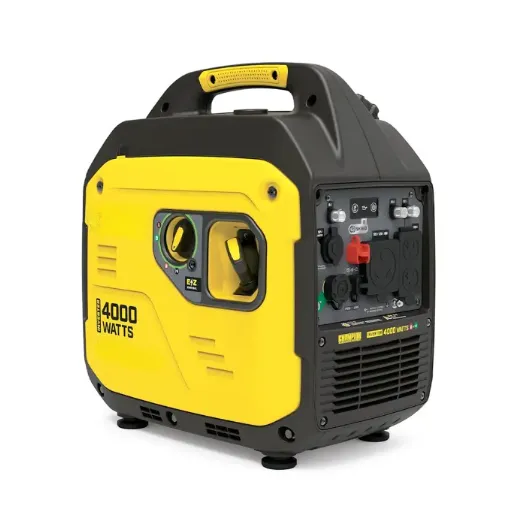
Aside from the battery factor, batteries regard other perspectives of a higher convenience, that is, within that particular dimension that among others goes along the higher investment that usually characterizes technology oriented aspects of any enforcement agency due to the advanced nature of the portable generators; batteries are safer since unlike fuel powered ones they do not create emissions or noises yet fuel powered units have fuel emitting fumes. Fuel generators are not convenient because they are almost impossible to maintain, as they require fuel and a significant amount of resources during maintenance.
Fuel-generating units, on the other hand, are usually inexpensive upon acquisition but end up being expensive due to their high fuel consumption. They are invaluable for use within a short duration. The more these units are used, however, the higher the cost increases, especially over a long timeframe.
Ultimately, it depends on the requirements and the amount of usage. In such cases, fuel-based generators are better suited than battery-operated ones. Conversely, for people who can afford the costs associated with fuel-based systems, battery-operated electrical systems may not meet the minimum standards for electrical power consumption.
Affordable Options for Budget-Conscious Buyers
Considering the cost, there are numerous cost-effective generators available on the market for those who value their money and want to save. Lower-end power banks generally have smaller footprints than those at the higher end of the cost spectrum, allowing them to be carried easily when occasional use is needed or when powering smaller accessories. Some even have USB ports, enhancing the charger’s usability. Moreover, cost-effective fuel generators are also available, and many perform well in powering the major utilities of the house during blackouts or outdoor events. Such models are perfect for their cost because, even without an automatic start, they remain efficient, offering the proper functionality. Choosing the best generator based on one’s preference requires thorough consideration of the power capacity, the expected runtime, and the generator’s service life.
High-End Models: Features vs. Price
Vastly expensive tanks, for instance, are aimed at people who want to enjoy both the aesthetics and technology. They usually come equipped with sophisticated features that enable them to deliver high-quality work. They are also not very loud and often have excellent construction quality, both internally and externally, ensuring reliability and durability. Other aspects could include an intelligent controller that allows you to watch, monitor, and control all generator operations from the comfort of your seat. This, of course, is only one of the many luxuries that the customer will have to pay for. Such premiums exist for a good purpose, but the costs for each model are high and can average more than $3,000. For instance, the inverters in such a group tend to have less harmonic distortion and are therefore able to run sensitive equipment, such as computers. Still, a good inverter will cost you anywhere from $1,000 to $ 3,000, depending on the manufacturer and watts. Likewise, it is far from enough to purchase an upscale model; one needs to consider one’s specific requirements and the presence of more expensive components in these generators.
Cost of Accessories: Solar Panels and Sensors
In extensions of contemporary power schemes, such as solar systems and sensors, accessories may vary in price; customers consider the performance of these products. For instance, people in the market to buy solar panels for their homes will have to part with between $150 and $350 for a unit, depending on the wattage and whether it is a monocrystalline or polycrystalline design, or even more for higher-performing panels. High-efficiency panels have a higher cost compared to standard panels, but they justify themselves in the future due to their higher power output. They are therefore preferred by people who plan to save energy in the long run.
Sensors, which play a significant role in the efficient and sustainable use of energy, vary significantly in terms of their cost. Typical prices range from $50 to $150 for basic sensors used in domestic energy monitoring, whereas high-end systems, including comprehensive reporting and innovative controls, can cost more than $300. The use of sensor installed free solar panels can support a sustainable energy eco-system getting the occupants to take charge of their energy use effectively and increase the use of renewable energy solutions which they have previously invested.
Home Backup Solutions with Portable Generators
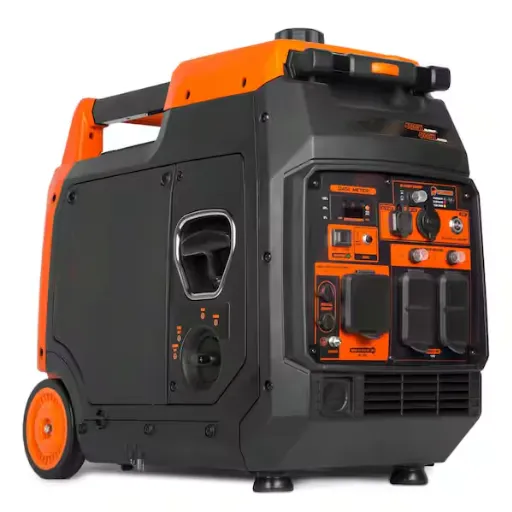
Portable generators are worth mentioning when it comes to providing a stable power source at home. Portable generators are easy to handle in that they are capable of powering essential equipment, such as food storage, lights, and even medical equipments. When selecting a portable generator, designs with higher wattages that cater to the specific needs of a home are preferred. Pay attention to factors such as the appliance’s design, noise variation, and, most importantly, protection features like automatic shutdown in the event of overload. It is discouraged to use the mobile generators in enclosed areas to avoid carbon monoxide poisoning. Remember to follow the manufacturer’s rules while in operation.
Benefits of Using a Portable Generator for Outages
Reliable Power Supply for Essential Devices
In residences, the lack of appliances during power outages can be addressed with the use of a generator, which eliminates food spoilage and keeps residents warm and protected. Some reports indicate that a 5,000-watt generator is sufficient to run some of the most basic home appliances, including lights, a fridge, and in some cases, a small heater, without overloading the system.
Emergency Preparedness
It is possible to weather disasters, such as changes in weather or grid failures, and shield yourself by simply possessing a generator. They have the handheld type, which, therefore, makes it very easy to put them off[?] And as long as you have them in place, there is less to worry about. Relief.
Flexibility and Portability
Portable models can also be used in other places, unlike fixed models that must stay in one place. This makes them perfect for excursions, parties, and power-dependent temporary job sites.
Cost-Effective Solution
Portable generators are more expensive than standby ones; hence, the latter is often considered cost-effective and is the choice of many. Due to the simplicity of their maintenance, it is cost-effective provided it is done as required, hence enhancing the value of the generator in use.
Fuel Options and Efficiency
Most portable generator motors are powered by gasoline, propane, or a combination of both, offering users very flexible alternatives depending on availability. Improved models also feature very economical engines, as they use significantly less fuel compared to other engines, whose consumption is much higher. For example, present-day inverter technology generators can be operated for 8-12 hours or even more by utilizing a small amount of fuel.
Safety During Prolonged Outages
This also enhances household safety, as portable generators provide a valuable resource when functional, especially when combined with light, communication devices, and security systems. People in the critical category, i.e., those with basic medical life-saving equipment, can also benefit from this, as it shows that non-emergency rescue can even prolong their lives.
Choosing the Right Wattage for Home Backup
If you need a Home Backup, there are several factors to consider to determine the optimum wattage you will need. In this effort, it is essential to know what type of electrical devices you would like to energize whenever the power is off in your house. This may include refrigeration (freezers/chillers), medical equipment, electric lighting, room heaters, and other similar items. How many watts do you need? Total the watts of all these appliances, including their starting power and operational power. For instance, other appliances, such as refrigerators or air conditioners, have compressors that require an extra stiffening torque.
Every day, people, such as those living in a small house that necessitates basic energy requirements, may opt for backup sources with 3,000 to 5,000 watts of power output, whereas 7,500-watt generators and more could be more suitable for larger homes with higher energy consumption. In the same breath, people with high electricity consumption can purchase generators that are even more powerful and have a longer range, for example, those equipped with an air conditioning unit or any other electric heater to be used during a power shortage. Efficiency and reliability will come from units with inverter functionality that is ideal for powering medical gadgets or laptops. By properly analyzing your circumstances and being aware of the wattage you require, you can be confident that your standby generator will be helpful in times of crisis.
Reference Sources
-
- Key Findings: This study explores the integration of hybrid renewable energy systems with diesel generators to reduce operational costs. It highlights the advantages of using small split diesel generators over larger ones for cost efficiency and flexibility in hybrid systems.
-
- Key Findings: This research focuses on the development of a small water turbine generator designed for deep-flow hydroponics systems. It emphasizes the generator’s potential for sustainable and cost-effective energy production in agricultural applications.
Frequently Asked Questions (FAQs)
Q: What types of portable generators are available?
A: Presently, an assortment of distinctive kinds of stand-alone or mobile electric power generators circulate on the market. Many different types of portable electric power sources can be differentiated by their power sources, including gas-powered combustion engines, propane-powered combustion engines, and gas–propane dual–fuel combustion engines. Another popular type of portable generator used by people is the inverter generator, due to its quiet or very low noise operation and, more importantly, the ability to power devices such as computers and other electronics that require electrical energy. In the case of residential utilities, the choice of an appropriate generator arises from the specific use cases involved.
Q: What should I consider when calculating the costs for a small generator?
A: In determining the expenses related to purchasing a small power generator, it is necessary to calculate all cost aspects, such as the cost of acquisition, maintenance, and fuel. Fuel-operated generators that run on gas, for example, usually require regular top-ups; hence, one will have to refuel them more frequently compared to those that use propane and natural gas. Just as important is the expenditure on auxiliary equipment, such as a transfer switch or battery backup, for electric start versions. One is advised to ascertain the warranty and quality of the material, as well as any other high-cost item, to ensure depreciation and effectiveness in the case of the generator. This is especially important if one is looking ahead.
Q: Is a dual-fuel portable generator worth the cost?
A: Having a portable generator that can operate on two fuel types, like gasoline and propane, is helpful and sometimes worth the cost, particularly when you anticipate power outages and require a standby power supply. This is because they can easily switch to a preferred fuel due to its availability and cost. Although they are often more expensive than single-fuel types, the advantages they bring in terms of being purposeful and easy should be considered. However, think about whether the extra cost is worth it. Additionally, most dual-fuel versions currently in production models are more energy-efficient, which tends to result in long-term cost savings. Whether a dual-fuel generator is appropriate can only be determined by examining one’s usage needs and expectations.
Q: How does wattage affect the cost of a generator?
A: Power output is another factor that determines the cost of a generator. Actually, the higher the capability of a generator, the higher its price. The higher the capability, the higher the power output. In this case, even when comparing two generators, the less powerful generator can be more expensive because of its ability to support a load of a given weight. For instance, a 3,000-watt portable generator that can power even very large, power-hungry equipment can never be sold at the same price as a smaller generator that can only be installed in a room. When considering a generator, it is essential to determine the number of watts accurately representing the average need in your location for powering appliances, so that whatever you are dealing with is neither overpowered nor underpowered.



